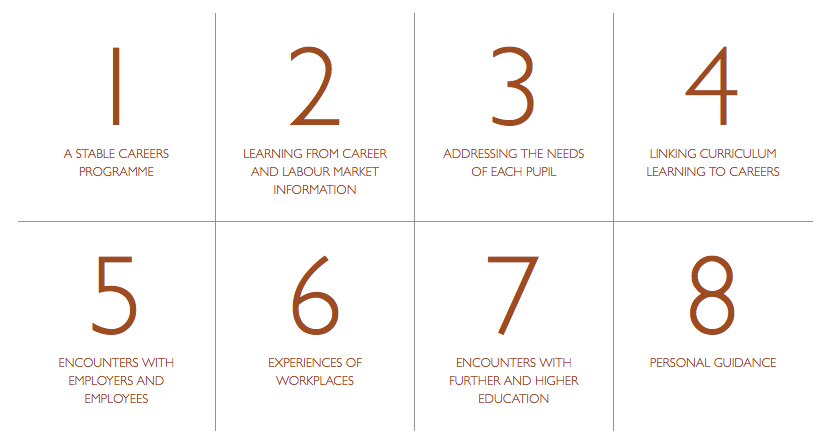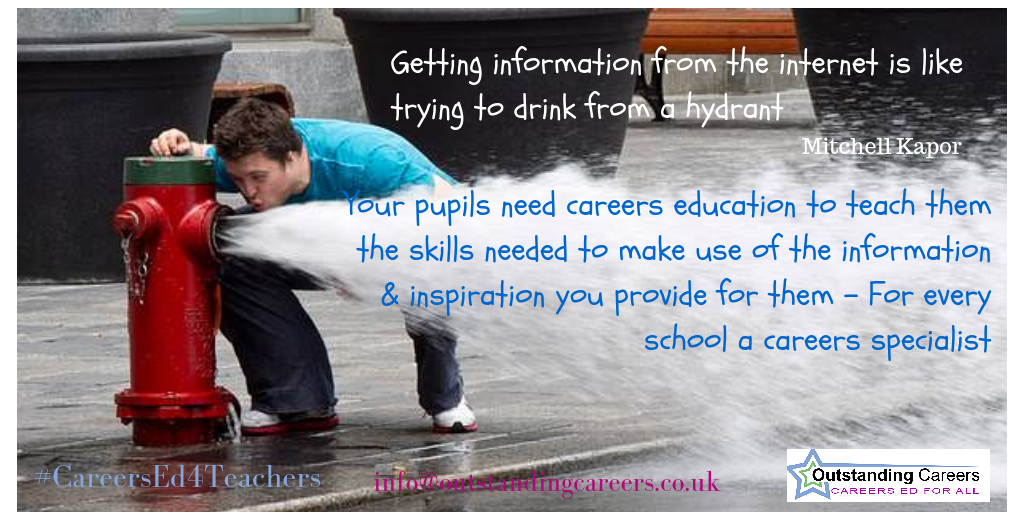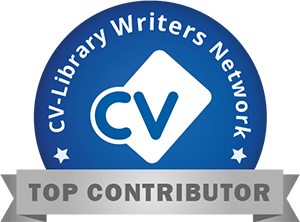CEIAG & Careers Leaders
- Academic, Vocational and Technical routes - giving them equal weight. A blog for #NAW2020
Academic, Vocational and Technical routes - giving them equal weight. A blog for #NAW2020
Monday 3rd February 2020
The statutory guidance says we must do it... so why aren't we?
Firstly - let me be clear, I'm not saying YOU'RE not doing it. Just that a sizeable number aren't
What am I on about?
Giving equal weight to Academic, Vocational and Technical routes into adult working life.
The statutory guidance says
The governing body must ensure that the independent careers guidance provided:
- is presented in an impartial manner, showing no bias or favouritism towards a particular institution, education or work option;
- includes information on the range of education or training options, including apprenticeships and technical education routes;
- is guidance that the person giving it considers will promote the best interests of the pupils to whom it is given.
It then goes on to say
The Technical and Further Education Act 2017 inserts section 42B into the Education Act 1997 and came into force on 2 January 2018. This new law requires the proprietor of all schools and academies to ensure that there is an opportunity for a range of education and training providers to access all pupils in year 8 to year 13 for the purpose of informing them about approved technical education qualifications or apprenticeships.
Can I just emphasise, it says ALL pupils, not just the ones who aren't suitable for university. However, apparently two thirds of schools are still flouting even the basic requirement of providing an access statement on their website, let alone complying with the law and providing all pupils with unbiased information. Source
Finally Ofsted's new framework is giving equal weight to pupils choosing the academic, vocational or technical routes.
So why am I wittering on about this topic now? Well it is National Apprenticeship Week and it's something that I feel passionately about. ALL pupils should have information about ALL routes in order to be able to make up their own mind.
I was lucky enough to be born in a time when I didn't have to pay for my post school education. Young people these days are not so lucky and they mostly come out of university with a debt running into 5 figures This scares some people and others are not so worried, seeing it as an investment into their future. That is not the issue here. The issue, in my humble opinion, is that schools tend to default into a mix of certain 'accepted truisms' of which there are many but the top 3 are below.
1. University is the best option for all of those capable of getting in.
2. Apprenticeships are for builders and suchlike - trades, the ones that don't need to go to uni.
3. We need to keep as many as possible in our sixth form
4. The key to social mobility is going to university.
What is the harm in that? - Well things are changing, we have to keep up
We now have degree and even masters apprenticeships and level 2 and 3 apprenticeships can lead to foundation degrees and A levels can lead to apprenticeships, Add to this the coming T Levels and we have a system that is in flux. We, as teachers, need to keep up.
A report published by YouGov last week shows that just 11% of pupils are given adequate information about apprenticeships and technical routes. This statistic further breaks down to show that only 5% of girls and just 14% of boys were happy with the advice given to them. Source
Nobody is saying this is anyone's fault, it just is what it is. Teachers are busy and the recent changes in the way that careers learning is taught in schools is yet to be embedded fully. However, one key direction from the statutory guidance is very clear.
We should make sure that the
guidance that the person giving it considers will promote the best interests of the pupils to whom it is given.
This means giving them ALL the options.
So what should we be doing about this anomaly?
- As careers leaders we should be ensuring that staff get enough information about routes using their subject to be able to give pupils information about routes other than university.
- As teachers we should be seeking this information out.
Hang on, why is it the teacher's job to find out
Firstly, because it benefits you the teacher. Research has proven time and again that linking your subject to careers improves engagement and attainment Advancing Ambitions by the Sutton Trust
Secondly, depending on which survey you refer to 60-80% of pupils go to their teachers for advice on careers paths, so for that old reason, to make a difference.
Thirdly the Gatsby Benchmarks, which all schools should be achieving by September 2020 say that careers should be linked to the curriculum. To do this, the teacher needs some understanding of the careers that make use of what is taught in their subject and the skills that are developed by it.

Some tips on giving careers advice for teachers
- Find out what apprenticeships, and traineeships and school leaver programmes are
- Don’t be afraid to say I don’t know if you aren't sure
- Make friends with your school Careers Leader and/or Adviser
- Develop a list of trusted ‘go to’ resources
- Get to know your pupils – ask about their aspirations
- Keep conversations light – don’t confuse career & behavior issues
- Speak to your school Careers Leader - ask for support
- Don't default to the uni route without thinking first.
- Point them in the direction of some guidance End every conversation with – why not go and see the careers adviser.
Hang on, What's the difference between advice and guidance
I like this definition from CSW Group
Whilst ‘careers advice’ can involve things like signposting to information about learning and work opportunities, ‘careers guidance’ is more in-depth and enables the adviser to explore interests, skills, aptitudes, and attitudes. The adviser also uses their professional skills to help identify issues and explore how individuals might overcome them, creating a bespoke plan of action for the future to enable the individual receive the correct level of help.
Our pupils are getting information from lots of sources, the internet, employers, family etc. They just need a little help in processing it for themselves in their best interests.






